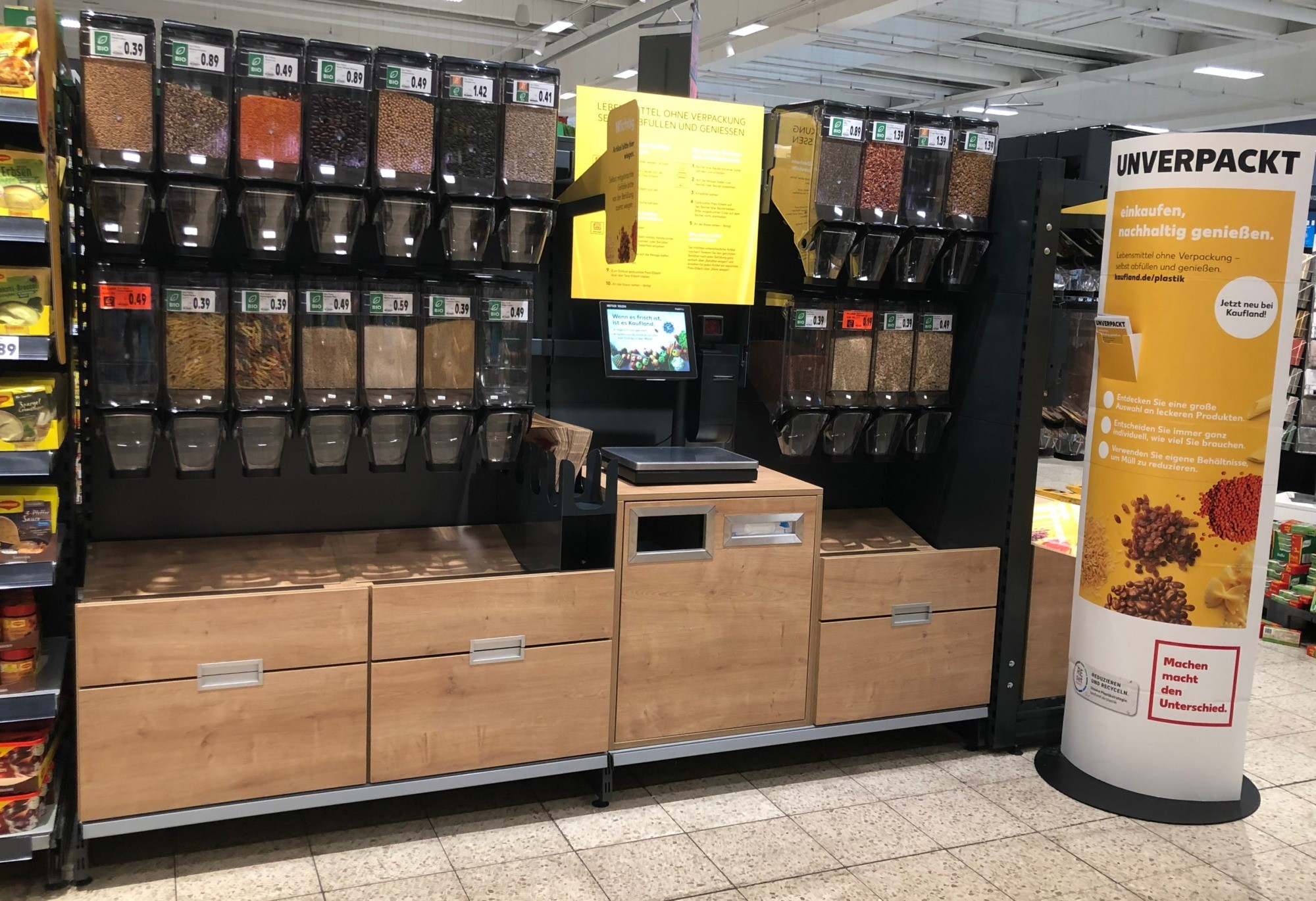The German supermarket chain Kaufland, part of the Schwarz Group, is expanding its “unpacked” stations at the POS, introduced in 2021, to include deposit cups made of 50 percent recycled material. The disposable containers can be returned to Kaufland by consumers as empties after use and then enter the Schwarz Group’s own recycling cycle. The new solution is exciting. It relies on the use of recycled material and at the same time ensures reuse via the deposit system. “Unpacked” will continue to grow. This is due not least to pressure from legislators.
The Schwarz Group is a global big player in the retail sector. In addition to the supermarket chain Kaufland and the discounter Lidl, however, the company also includes the waste disposal and environmental service provider PreZero.
Unpacked at Kaufland
As part of its “REset Plastic” plastic strategy, Kaufland launched test “Unpacked Stations” in selected stores last year. To date, these stations have been installed in a total of eight stores. According to the company, the “unpacked” range has been well received.
- The “unpacked” range includes around 40 staple foods such as rice, pasta, bulgur and quinoa, as well as chocolate-coated nuts, dried fruit and muesli.
- Shoppers can make use of the containers on offer or fill the goods into their own containers that they have brought with them.
- By offering unpacked goods, Kaufland says it is pursuing the goal of reducing both plastic and food waste in private households.
The disposable deposit cups
- The cups and their lids are made of 50 percent recycled PET.
- They have a capacity of 600 millilitres.
- The deposit value is 0.25 euros and is refunded when returned as empties to Kaufland stores.
- After being returned, the disposable cups are sent for recycling by PreZero, a waste management company belonging to the Schwarz Group, where they are reused.
REset Plastic at Kaufland
The latest campaign is part of the Schwarz Group’s REset Plastic program. As part of this strategy, the company has set itself the goal of using less plastic and closing loops at the same time.
Kaufland had already taken steps in the direction formulated in previous years. These include
- plastic-reduced packaging,
- the discontinuation of disposable carrier bags,
- the use of recycled PET bottles,
- the introduction of the fresh bag for fruit and vegetables, and
- the introduction of a reusable lid for dairy products.
In this way, unpacked becomes a well-rounded solution.
Kaufland’s latest cup example shows how “unpacked” can be approached in a sensible way. On the one hand, this involves using recyclates as extensively as possible. The model gets the right “kick” by integrating the cups into a deposit system. It is tried and tested and works better than recycling via collection by household systems. The fact that Kaufland can ensure material recycling via its “own disposal company” also makes the solution completely rounded off from a corporate point of view.
Outlook
We will see more “unpacked”. Not least because the model is also attracting more and more attention from regulators. The pressure from corresponding legislation will increase. The industry is well advised to proactively work out solutions here.

